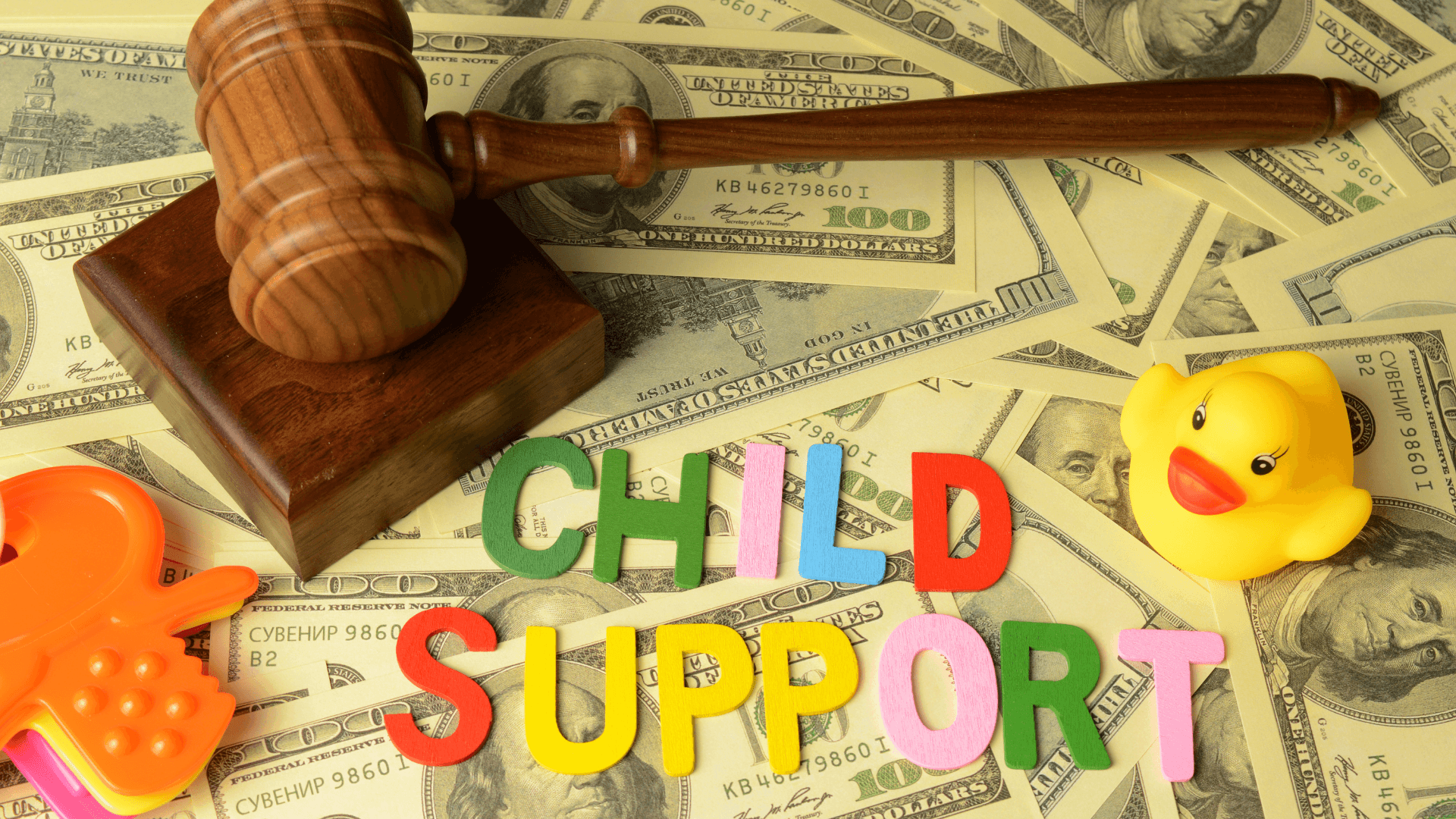Child Support in 50/50 Custody Arrangements
Many parents discover with surprise that 50/50 custody arrangements still require child support payments. This realization often shocks the parent who must make these payments despite sharing equal parenting time with their former partner.
The confusion makes sense. After all, if both parents have the child for exactly the same amount of time, shouldn’t they divide financial responsibilities equally too? Unfortunately, family law doesn’t always work that way, and for good reasons.
Key Take Aways
- Equal time doesn’t equal equal finances: Child support in 50/50 custody primarily addresses income disparity between parents, not parenting time.
- State laws vary significantly: Research your state’s specific guidelines as formulas differ dramatically across jurisdictions.
- Income is just one factor: Courts consider health insurance costs, childcare expenses, special needs, and other factors beyond basic income when calculating support.
- Support can be modified: If your financial circumstances change substantially, you can petition the court for a modification of your support order.
Introduction
Many parents are surprised to discover that even with perfectly equal 50/50 custody arrangements, child support payments may still be required. This realization often shocks the parent required to make payments. They find themselves financially responsible despite sharing equal parenting time.
The confusion is understandable. After all, if both parents have the child for exactly the same amount of time, shouldn’t the financial responsibilities be equally divided as well? Unfortunately, family law doesn’t always work that way, and for good reasons.
Beyond Counting Days: How Child Support Really Works
Child support systems across the country aim to ensure children receive adequate financial support regardless of their parents’ relationship status. What many don’t realize is that custody time and financial obligations follow separate tracks in family court.
When judges calculate child support, they look at a much bigger picture than just the number of overnight stays with each parent. They attempt to preserve the child’s standard of living and ensure both households consistently meet their needs.
The Income Factor: The Biggest Determinant in 50/50 Custody Cases
Income differences between parents impact child support most in 50/50 arrangements. Higher earners typically pay support even with equal parenting time.
Consider a parent earning $90,000 versus one earning $30,000. Most states require the higher earner to help balance the child’s experience in both homes.
This approach benefits the child, not either parent. It prevents dramatic lifestyle shifts as children move between households. Children deserve consistent living standards regardless of which parent they stay with.
Without this balance, kids might enjoy comfort in one home while facing financial constraints in the other.
State Guidelines Create Significant Variations
Child support calculations vary dramatically depending on where you live, adding to the complexity. Some states weigh the percentage of physical custody heavily, while others focus almost exclusively on the proportional income of both parents.
In states like New York and California, even a perfectly equal custody arrangement won’t eliminate support obligations if significant income differences exist. Meanwhile, other states adjust calculations mathematically based on the exact number of overnight stays.
You must understand your specific state’s approach rather than relying on general principles or advice from friends who live elsewhere. What holds true in one jurisdiction might differ completely in another.

Beyond Basic Support: Additional Expenses Matter
Child support calculations typically account for more than just daily living expenses. Courts consider:
Health insurance costs and uncovered medical expenses often require proportional contributions from both parents, regardless of the custody schedule. If one parent carries the insurance, the other may need to offset that expense through support payments.
Educational expenses including supplies, activities, and in some cases tuition, can factor into support calculations. This particularly applies to children with specialized educational needs.
Childcare costs necessary for either parent to work frequently require proportional sharing based on income, not according to the custody schedule.
Extracurricular activities that benefit the child’s development may influence appropriate support levels, particularly for activities that cross between households.
The Law Recognizes Different Family Sizes
Support calculations adjust based on how many children require support and sometimes their ages. A parent with three children faces different obligations than a parent with one child, even if all other factors remain identical.
This creates complex situations in blended families where parents may have children from different relationships, each with different support arrangements.
Special Circumstances Require Special Consideration
Children with medical conditions, disabilities, or special needs often require extra financial arrangements beyond standard child support calculations. These circumstances create significant ongoing expenses. Courts usually distribute these expenses proportionally based on each parent’s ability to pay, not just their parenting time.
The Reasoning Behind Support in Equal Custody Cases
Understanding the philosophical foundation of child support helps explain why it exists even in equal custody situations. Three key principles guide most family courts:
Financial equity between households aims to prevent children from experiencing dramatic differences in living standards when moving between homes. Support payments help balance resources when income differences exist, ensuring children don’t feel the impact of economic disparity between parents.
The child’s best interests remain paramount in all family court decisions. Courts focus on what arrangement best serves the child, not what might seem mathematically fair to parents. A child’s needs don’t diminish simply because they divide time equally between homes.
Legal parental obligations establish that both parents maintain fundamental responsibility to support their children financially regardless of custody arrangements. The law views financial support as a basic parental duty that exists independently of time spent with the child.
Adapting to Changing Circumstances
Life rarely remains static after establishing a custody arrangement. If you experience significant changes—job loss, substantial income changes, or new medical expenses—you can petition for modification of your support order.
However, these modifications don’t happen automatically. Courts typically require documentation of substantial changes before adjusting orders. Minor fluctuations in income or temporary changes usually don’t qualify for modifications.
The Bottom Line
While equal parenting time represents tremendous progress in co-parenting arrangements, it doesn’t automatically eliminate support obligations. Understanding that time and money are separate considerations in the eyes of the law will help you navigate this aspect of co-parenting more effectively.
Remember that child support isn’t a punishment or payment to the other parent—it’s a shared investment in your child’s wellbeing and future.
Find a Local Child Support Agency Near You
The Office of Child Support Enforcement’s interactive map is a helpful reference because it provides clear, state-specific guidelines for modifying child support orders. It also connects parents directly to local agencies, simplifying the process of initiating or changing child support arrangements.
Frequently Asked Questions About Child Support in 50/50 Custody '.
Even with equal parenting time, child support may still be required to balance the financial resources available to your child in both households. The primary factor is usually income disparity between parents. Courts aim to maintain a consistent standard of living for the child regardless of which parent they're staying with. Child support helps ensure your child's needs are met equally in both homes when there's a significant difference in parents' incomes.
Each state uses different formulas for calculating child support in 50/50 custody situations. Most states consider several factors including:
- Each parent's income
- The number and ages of children
- Health insurance costs and medical expenses
- Childcare expenses
- Educational needs
- Special circumstances (disabilities, extraordinary medical needs) While custody time is a factor, it's often not the only or even primary consideration. Some states use an "income shares" model that focuses more on proportional contributions based on parents' earnings.
Yes. Child support orders can be modified if there's a substantial change in circumstances such as:
- Significant increase or decrease in either parent's income
- Loss of employment
- Major medical expenses
- Changes in the child's needs
- Substantial changes to the custody arrangement To request a modification, you'll need to file a petition with the court that issued your original order. Be prepared to provide documentation of the changed circumstances. Most states require proving a substantial and continuing change, not just temporary fluctuations.
Expenses beyond basic support are typically handled in one of two ways:
- They may be built into the basic support calculation
- They may be addressed separately with proportional contributions
For medical expenses, many support orders require parents to share uncovered costs proportionally based on income, regardless of which parent has the child when the expense occurs. For extracurricular activities, courts often order proportional sharing of agreed-upon activities. Some states have specific provisions for these "extraordinary expenses" while others leave it to parents to negotiate.
No. Legally, you cannot withhold court-ordered child support payments based on how you believe the other parent is spending the money. Child support is intended to help cover the receiving parent's household expenses that benefit the child, including housing, utilities, food, and transportation—not just direct purchases for the child.

About Esther
Esther C. Moore is a family law attorney with over 27 years of experience, including high-conflict child custody and divorce cases. This blog is part of our commitment to clarifying the nuances of child support laws, particularly in cases of 50/50 custody where financial obligations can be misunderstood. Whether you’re negotiating child support, modifying an existing order, or trying to ensure a fair arrangement, our goal is to break down the legal jargon and provide straightforward, actionable guidance.
At All Rise Solutions, we believe that knowledge is power—especially when it comes to protecting your financial future and your child’s well-being.






